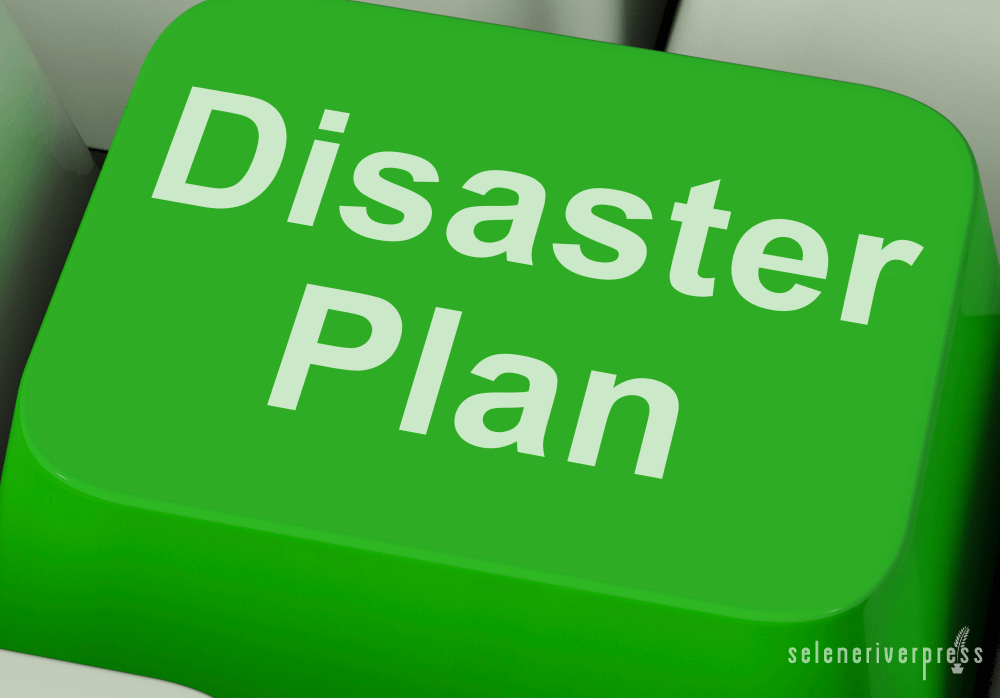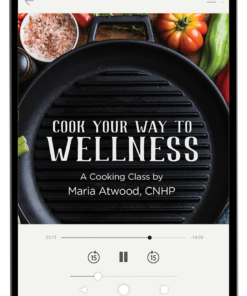A while back, I was reminiscing about many things. I recalled a conversation my late sister-in-law told us about her grandfather who, in the late 1940s and early ’50s, was consumed with the dire predictions of the times. When the family cleaned out his home after his death, they discovered a hidden opening inside one of the closets. He’d carefully dug out a small room and insulated the walls and floor with cement. His wife was already deceased, and he’d fit somewhat comfortably by himself.
Shelves were anchored to the walls, and there was even a contrived sort of air vent to the outside! There were radios, batteries, tons of canned food, and numerous other survivalist items. They estimated he’d invested, at the very least, $40,000—a virtual fortune at the time.
Although it seemed funny then, the story was also a bit disturbing. I took quick stock of my own cupboards and realized I only had ordinary day-to-day things. Are you also in that position? If yes, then keep reading.
The enormous mental and physical stress created by 24/7 coverage of disasters, floods, radiation, and other calamities has had the effect of making us feel very insecure. Consequently, we become so paralyzed that instead of doing something, we do nothing!
If any of these were to come to pass, I recognize that I’m not in a position to build an underground bunker or elaborate fishpond, move to the dessert or mountains, or live off the grid. I nevertheless want to make an effort to follow the wisdom that “God helps those who help themselves.”
Following is my own simple take on how to get a modest preparedness plan in place, while spending conservatively, to help get by for a few days or weeks during a disaster. It’s my firm belief that as long as we strive to be prepared to meet our future needs, should we ever run out of provisions, providence will save the day, keep us safe, and help us in difficult times.
As you read the steps below, please remember that I’m not detailing a full-scale preparedness plan. There are plenty of detailed plans to be found in books and online. These recommendations are for those people who may be living from paycheck to paycheck and have little left to spend on disaster preparedness. If you’re resolved to be prepared for several days or a few weeks, it doesn’t have to cost a fortune.
Simple 8-Step Preparedness Plan
1. Get out of debt: Resolve to write a budget and live with it. This will help you become debt free as quickly as possible, with the exception of your mortgage. The best way to save for a rainy day is to ask yourself—before you make any expenditure, no matter how small—if it’s something you really need, or if it’s something you just want.
Asking yourself this simple question will help you cultivate a rewarding new virtue. It’s called prudence, meaning “provident care in the management of resources; economy; frugality.” And it’s never too late to start.
2. Look at your saleable assets: Make a list of every unnecessary asset you can sell. Use the proceeds as seed money, first and foremost to pay off debt, and then to begin building your preparedness plan.
3. Take stock of medications, remedies, and sundries: Make a list of medications, remedies, and other sundries (toilet paper, soap, rags, diapers, etc.) that are relevant to your health and the needs of your family. I suggest you start buying one or two extra items that you use on a daily basis. Take notice of what you’ve most needed at the end of the year and adjust your list accordingly. Stockpiling things you don’t presently need may be money you could have used to pay off debt.
4. Make a list of useful small tools: Sometimes the lack of a proper can opener, knife sharpener, compass, pliers, or even simple things like nail nippers can be frustrating and cause arguments at a time when calm is most needed.
5. Make a list of appropriate clothing: Make sure your next clothing purchase is made of lightweight, insulated materials like Thinsulate, which is now available in jackets, shirts, and slacks. Also buy one pair of waterproof boots. Other items to include are blankets, rain jackets, tarps, and other things relevant to your area. ARC Thrift, Goodwill, and other thrift shops are a great place to find bargains that would fit many of your needs.
6. Use your car as your bedroom: It may be wise to reevaluate your car as one day you may need to use it as a bedroom for a while. Many of us drive small economy cars to save on gas. However, it may be important to think of your car or truck as a place where you can store emergency supplies—and even spend a few nights with your family. As your money grows, purchasing a small, used camper may be ideal. It would provide some fun times now but also be there for you if things get rough.
7. Store records, photos, and keepsakes: Store your will and all of your medical records, photos, and keepsakes in a safe, waterproof container. Be sure that your full name and address is on the inside in case it gets separated from you during a flood or fire.
8. Keep food and supplements on hand: In this plan, I don’t recommend storing any grains, legumes, rice, salt, and other foods in bulk. I know, I know—probably all of my frugal acquaintances, and many readers, are thinking, What? She’s got it all wrong!
Nevertheless, buying and storing small quantities of the foods and supplements you use most means you can take them just as you take them at home. You’ll also have the ability to rotate them, and in an emergency you can quickly go to your storeroom or closet and pack more in a waterproof backpack or container. If you want long-term storage, I vote to put the smaller sealed items inside of containers rather than store 25 pounds of loose bulk grains that you cannot carry easily.
Another major problem I see with people preparing for hard times is buying cheap cans of sale items, discontinued items, or regular canned meats (with some exceptions—see below). While canned fruits or vegetables are okay, most cheap canned items, and possibly long-term MRE packets, don’t provide the nutrient dense value we get from whole foods. You’ll need those nutrients to keep you healthy as you deal with the stress levels that accompany even small disasters.
In this case, less is more when it comes to preventing colds, infections, and other illnesses that could be avoided by storing only the best of the best. Is it more expensive? Not if you choose carefully and make a good deal of food at home, both to eat in a disaster and as part of a daily diet. A small amount of highly nutrient dense foods is far better than lots of cheap canned foods. See more food suggestions below.
Useful Items in a Modest Preparedness Plan
- Waterproof money belt for storing cash or coins
- Berkey water portable filtering system
- Portable potty
- Portable cooking stove
- Religious or spiritual literature and keepsakes
Recommended Essential Nutrient Dense Survival Foods
No matter how much effort you put into your plan, it’s really about the food you’ll nourish your body with that counts. Learning to make these foods and using them in your daily life now means you’ll be prepared when and if you ever need these skills to survive.
- Dried beef, buffalo, or deer jerky (see my Cook Your Way to Wellness DVD)
- Pemmican made with beef tallow
- Coconut oil in lightweight safe plastic bottles
- Fermented cod liver oil-butter blend
- Canned meats recommended in the Weston A. Price Shopping Guide
- Dehydrated veggies, fruits, and crispy nuts from Cook Your Way to Wellness
- Homemade granola (see Nourishing Traditions)
- Sundries like salt, spices, etc.
- Food sealing machine for home use
Recommended Essential Supplements
Standard Process whole food supplements are just as important as the food you store. These are two of my favorites:
- Cyrofood Powder – A complete whole food multivitamin supplement.
- Calcium Lactate Powder – A powerful combination of calcium/magnesium. See my blog post “Let’s Take a Closer Look at Calcium” to learn why it’s so important.
Photo from iStock/stuartmiles99
Note from Maria: I am a Certified Natural Health Professional, CNHP, not a medical doctor. I do not diagnose, prescribe for, treat, or claim to prevent, mitigate, or cure any human diseases. Please see your medical doctor prior to following any recommendations I make in my blogs or on my website.




love the tip about using a vacuum sealer, I use my Gamesaver for meat all the time, and recommend it, here’s a review:
http://www.foodsaver.com/vacuum-sealers/wild-game-vacuum-sealers/the-foodsaver-gamesaver-titanium-vacuum-sealer/FSGSSL0800-000.html?interaction=product&source=igodigital
What great timing, Ben! I’m in the market for a vacuum sealer. If hunters like it, it must be a good one. Thanks.